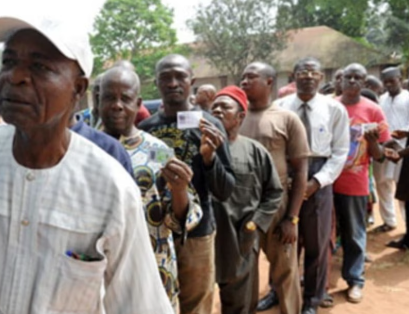The terrain of polities is hardly one for coincidences. Events that resemble coincidences often have been crafted by political actors to achieve predetermined ends.
During his tenure as Minister of Mines, Power and Steel, the late Chief Bola Ige once confessed that he was an enthusiastic participant in the Obasanjo presidency because it was implementing the programmes of his own party, the Alliance for Democracy (AD), and by extension therefore, the agenda of the Yoruba supremacist organisation Afenifere.
The recent threat by the Arewa Consultative Forum (ACF), and such bodies as the Supreme Council for Sharia in Nigeria (SCSN) and the Zamfara State government to organise the boycott of the proposed voters’ registration by INEC has further highlighted the depth of suspicion that characterise inter-group relation in Nigeria.
Not too long ago, Chief Abraham Adesanya, the Afenifere patriarch had disparagingly referred to the voting strength of Northern Nigeria as being augmented by “cattle and sheep” getting the opportunity to be counted in elections. Therefore, until and unless Nigeria’s subsequent elections are conducted with a National Identity Card, Afenifere would ensure a Yoruba boycott of such elections.
It is therefore more than a coincidence that INEC has been unable to kick-start the voter’s registration despite awareness that the August 10 local government polls can only be organised on the basis of a revised voter’s register if the entire process would not end up as an unconstitutional charade.
The foot dragging has triggered suspicion that it is a deliberate piece of the grand plan to implement the Afenifere agenda of conducting these voters’ registration simultaneously with the identity card project; a project whose chequered history, fraudulent antecedent and wastefulness are well documented in recent Nigerian history.
As pointed out in the ACF letter to INEC, the voters’ registration plan has been built around the completion of a complex data form, the collection of the voter’s thumbprint, and submission of passport-sized photographs, amongst other requirements. These as the ACF underscored were “strange and unprecedented”.
The Northern umbrella body further posited that the registration process would be subverted by the complicated procedure that INEC chose to employ. The entire exercise was then expected to be completed within five days which surely means that the majority of the eligible people in Northern Nigeria will be disenfranchised,
That the majority of our people are peasant farmers is well known, further that the registration process is fixed for the rainy season, when the farmer will be busy tilling his land, has therefore rekindled the fear of a well-constructed conspiracy to skew the voters’ registration against Northern Nigeria, where the majority of Nigeria’s votes come from. It is a well-documented fact that the Yoruba political and intellectual elite have always wanted to destroy the Northern electoral strength in their hegemonic ambition to dominate Nigeria.
It was this background that led to the ACF call on INEC to “stick to the procedure of revising and updating the existing voters’ register as stipulated by law”. That means that INEC should be content with the tasks clearly set out for it by law and desist from any overzealous attempt to become “a super giant conglomerate. . . combining the task of voters registration, national ID scheme and national population census”, in the words of the ACF.
Let it be clearly stated that the successful review of the voters’ register is the important first hurdle that must be crossed to achieve a valid transition in 2003. Nigeria’s history has been haunted by the inability of the political class to transparently ensure a civilian-to-civilian transition, as the tragic episodes of the First and Second Republics have shown.
This is why Daily Trust is calling on INEC to stick firmly by the law in the voters® registration process. It should be done against a background of adequate preparation, sufficient mobilisation and publicity, to ensure that eligible citizens in all parts of Nigeria are given the opportunity to be part of the democratic process.
The complex arrangement that has triggered threats of boycott of the entire voters’ registration programme by socio-cultural bodies and their rejection even by registered political pa ties, such as ANPP and NDP, should be abandoned by INEC, for the simple, tested and time honoured procedure that we are all familiar with.
It is the duty of all our political actors to ensure that democracy survives and is consolidated in Nigeria. An umpire such as INEC has a major responsibility to carry out its activities even before the commencement of electioneering, without one shadow of suspicion on the process that it is expected to midwife.


